Why is Your Car Stalling While Driving? (8 Common Causes)
A sudden stall while driving is both stressful and frustrating, leaving you stranded and facing pricey repairs. Stalling can happen when starting, stopping, idling or even at speed, with no single culprit behind every case.
We’ll explore the most common reasons that cars stall and what you should do if it happens so you can get rolling again.

What Does it Mean When a Car Stalls?
The term “stalling” is used to describe the sudden loss of power to a vehicle’s operating systems. Stalling can happen for several reasons, some of which are mechanical in scope, while others are of an electrical nature.
In some cases, a vehicle will restart without issue after stalling. However, at other times, a vehicle may crank to no avail.
In any event, vehicle stalling is cause for immediate concern and should be addressed as soon as possible. If stalling were to take place at cruising speeds, one’s safety could be compromised.
See Also: 7 Causes of a Car That Starts Then Dies
What Causes a Car to Stall
A vehicle can stall for many different reasons. The following are several of the most common of these reasons, all of which are cause for concern.
#1 – Fuel System Issues
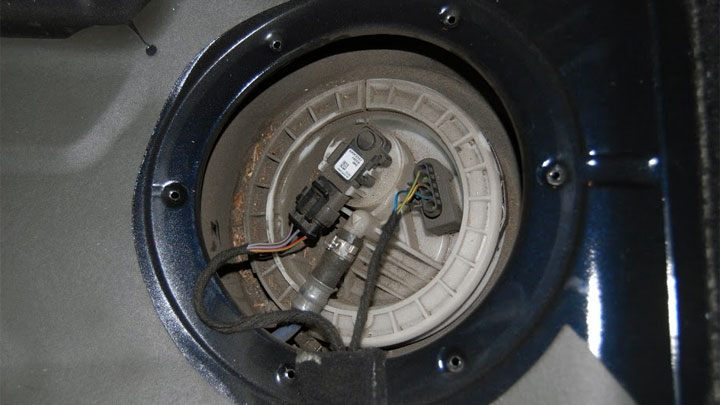
Any issue within a vehicle’s fuel system can lead to near-immediate stalling. Issues of this type most commonly include a loss in fuel pressure.
This condition can be caused by a failing fuel pump, severe fuel leak, or an obstruction within the fuel system itself. In any case, a lack of fuel pressure/delivery prevents an engine from achieving proper combustion.
#2 – Charging System Issues
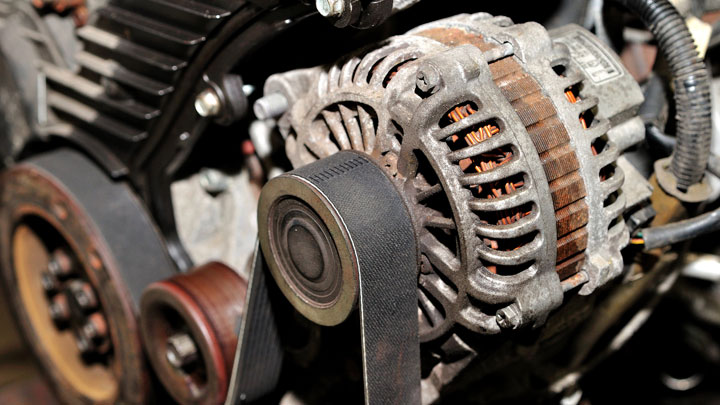
Once a vehicle starts, engine and component operation is sustained through the delivery of an engine’s charging system voltage. The most critical component within this system is a vehicle’s alternator, which generally provides 13.5-14.5 volts under normal operation.
However, a faulty alternator can provide significantly less voltage, leading to rapid battery discharge. Such discharge can lead to vehicle stalling in short order, even with a relatively new battery.
#3 – Spark-Related Issues
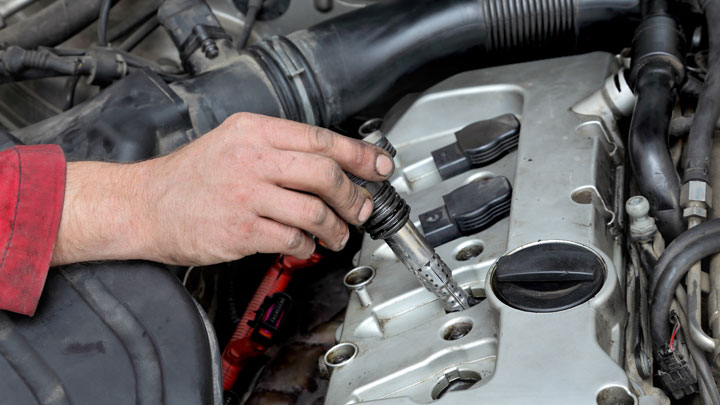
A gasoline engine relies upon spark delivery to ignite the air/fuel mixture within each cylinder. If this spark suddenly ceases, engine stalling will occur as a result.
Faulty ignition coils, deteriorated distributor caps, and damaged rotor buttons are all common sources of spark loss, which have the ability to induce a stalling condition. Such issues can occur at any speed, or at idle.
#4 – Sensor Issues
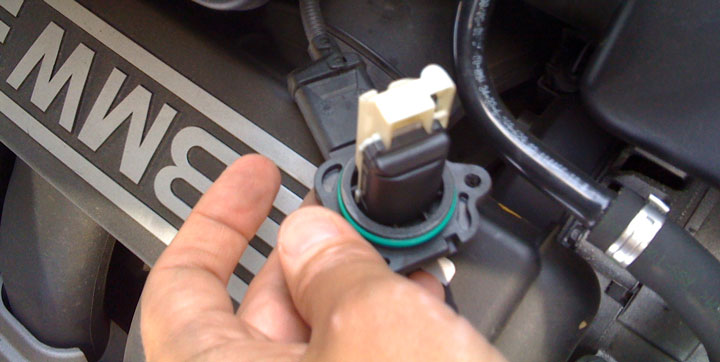
Issues with certain sensors can, and will induce engine stalling. This occurs when irrational, incomplete, or incorrect data is provided to an engine’s management software.
Some of the most common sensors responsible for engine stalling include the engine coolant temperature sensor (ECT), mass airflow sensor (MAF), and throttle position sensor (TPS).
Additionally, issues related to a vehicle’s throttle body or idle air control valve (IAC) can also induce a stalling condition.
See Also: Code P0133 (Oxygen Sensor Issue)
#5 – Vacuum Leaks
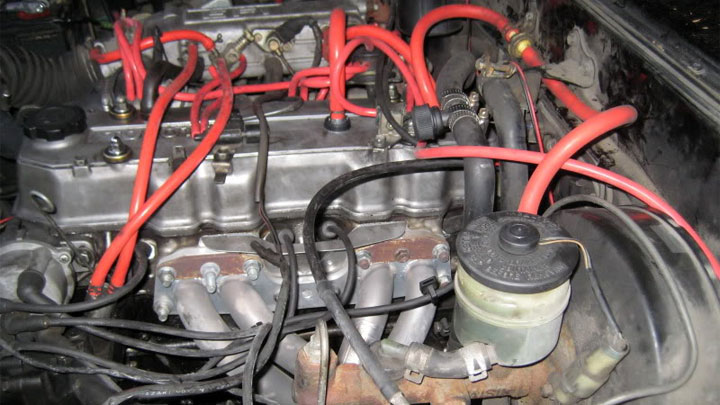
A vacuum leak is most accurately described as the introduction of unmetered air into an engine.
Large vacuum leaks can cause a lean condition within a vehicle’s engine, meaning that fuel delivery is insufficient to match the volume of air within each combustion chamber. This, in turn, can lead to stalling at random intervals.
Problems of this nature are often most noticeable at start-up in colder weather, as a richer fuel mixture is required for operation.
#6 – Lockup Of Belt-Driven Accessories
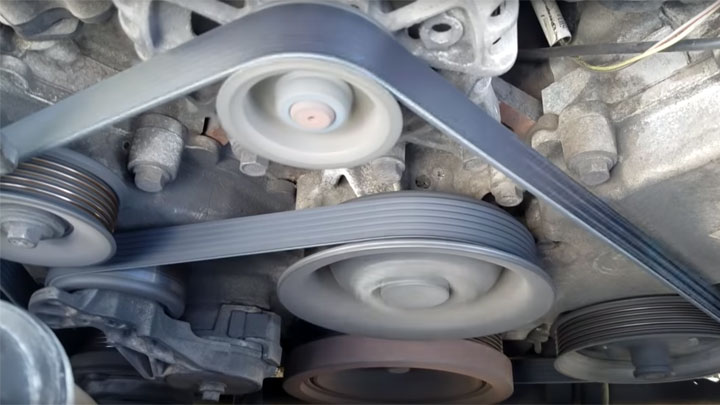
The sudden failure of belt-driven accessories can also lead to vehicle stalling. When such components, such as an A/C compressor or power steering pump lock up, resistance is placed upon an engine’s drive belt.
If the belt itself does not snap, excessive resistance will also be placed upon the engine’s crank pulley. This, in turn, can smother an engine out, putting it into a stall in the process.
#7 – Timing Issues
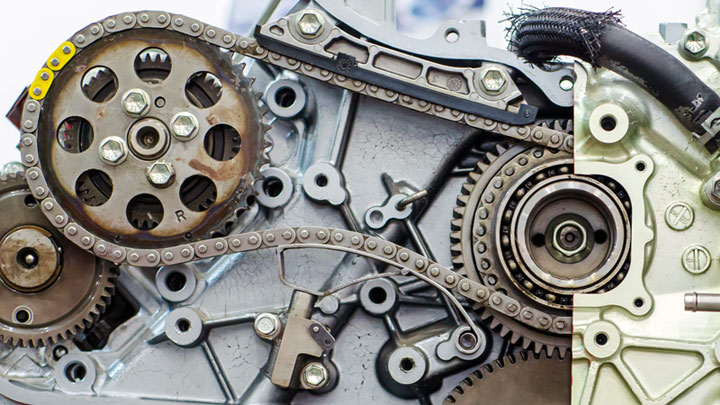
The vast majority of today’s internal combustion engines feature timing chains or timing belts. These belts/chains synchronize the timing between the engine’s crankshaft and top-end components.
If a timing chain or belt were to stretch or break, an engine’s timing can shift, causing a stall. In the most extreme cases, the breakage of a timing belt or chain can lead to severe internal engine damage.
#8 – Transmission Issues
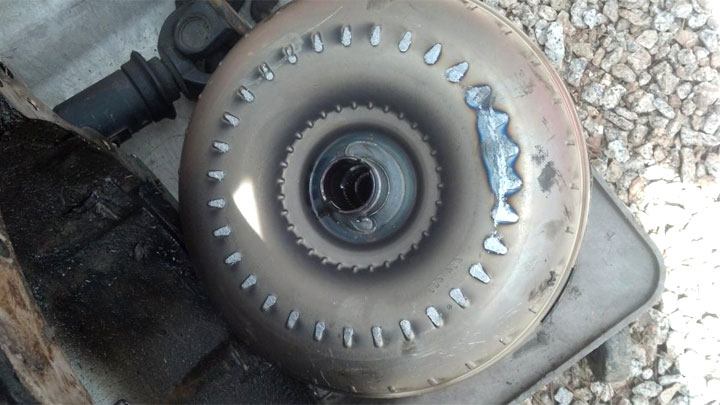
Occasionally, severe transmission issues can result in engine stalling. Failures of this type put excess strain on an engine, essentially bogging it down as a result.
Clutch-related problems (manual) and torque convertor issues (automatic) tend to be among the most common of these failures. In any event, problems of this nature are likely to worsen with time.
What Should You Do If Your Car Stalls While Driving?

If your car were to stall while driving, the first order of business would be to remain calm. Though panicking would seem natural in such a situation, keeping your composure is key to bringing a misadventure of this type to a safe resolution.
When stalled, a vehicle loses all power steering and power braking, meaning that both functions must be completed through manual force. Begin applying your vehicle’s brakes at a steady, yet reasonable rate. Over-braking will induce a skid, thereby further complicating matters.
You should also look for a safe place to pull over, which in most cases will include the shoulder of the roadway. After checking to ensure that it is safe to do so, carefully merge over onto the shoulder of the road, while using your vehicle’s turn signal. Upon reaching the shoulder, continue braking until your vehicle comes to a complete stop.
Once stationary, place your vehicle in park (automatic) or neutral (manual) and set the emergency brake. If the source of your vehicle’s stalling condition can not be easily identified and repaired roadside, call a wrecker to have your vehicle transported to a service facility.
Does Stalling a Manual Transmission Car Damage It?
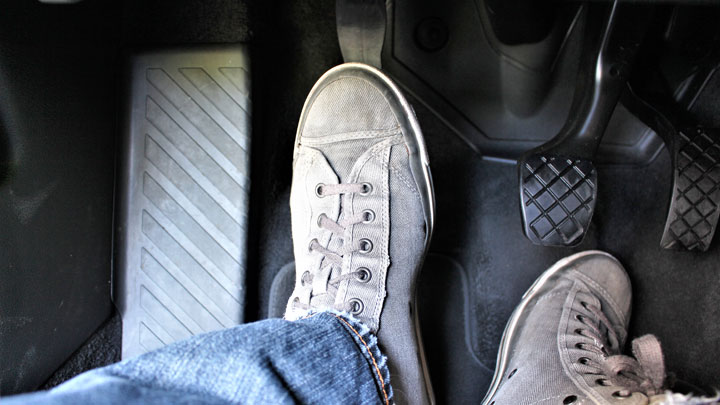
Many who are new to driving a vehicle with a manual transmission, deal with difficulties when attempting to take off at a stoplight, or when easing into a parking spot in reverse. If the correct amount of throttle/clutch is applied, a vehicle of this nature will stall, requiring a restart.
The question is, does stalling a manual transmission cause damage. The short answer to this question is “no”. While stalling a manual transmission is certainly not ideal, it is unlikely to cause any notable damage, unless done repeatedly over the course of several years.
At worst, repeated stalling might finish off aging components within the driveline that are already approaching the point of failure. However, most drivers will master the use of a manual transmission far before any damage can be sustained.
- P0480 Code (Symptoms, Causes, and How to Fix) - Apr 19, 2024
- Car Temperature Gauge Stopped Working? (Here’s Why) - Apr 15, 2024
- Ignition Coil vs Coil Pack (What’s the Difference?) - Apr 8, 2024

My 2015 Chrysler T&C van stalls at stop lights,especially after it has climbed a small hill! It is great with no issues while cruising at any speeds. What is problem and solution?
Are there any codes? It’s hard to say what the problem or the solution could be without doing some diagnostic work to narrow the scope of the problem. It could be a number of things causing issues with the vehicle’s idle.
Does the engine keep running if you give it a little bit of gas?
Good morning,
Do 2011 Chrysler Town and County’s have any know problems related to stalling? No codes come up and it has been random. Sometime driving some times ideling. We have replaced the PCV valve, air filter, installed the TIPM relay by-pass, etc. Thank you
I don’t know that they are especially prone to stalling. Have the shop check the EGR valve and the torque converter. I found a video where someone thinks it was the EGR valve or torque converter in his case, but he wasn’t sure which one.
I am curious to know if all 8 Causes are diagnosed by a scanner? What is the Scanner shows NO CODES what can I do to diagnose the correct issue causing stalling?
No, a scanner won’t always detect all 8 of these.
Serviced recently included fuel filter.. did not stall for a few weeks, before that it was EVERY DAY I used it… parking, reversing 40mph… slowing down, speeding up… Typically breaks down in the most inconvenient places. So very very dangerous… No Fault modes found or listed?????
I have no idea, and you’ll probably have to do some diagnostics to make sure you have sufficient air, fuel, and spark. For instance, you could do a fuel pressure test, check the spark with an inductive clamp or a scan tool, and check fuel trims to make sure you’re not running excessively rich or lean (although, I would expect a code from this).
Next I might try giving the electrical system a quick check. Make sure all major grounds are clean and tight, including the battery cables. Test the alternator and the battery, and also inspect the battery terminals for corrosion.
Honda prelude mk 4 2.0 litre auto 1993
I haven’t yet found an answer on a forum altho others have had the problem. The car immediately restarts after stalling and there is generally no warning light. Seems possibly worse in wet weather. Might stall once in 1.5 hours drive. In the summer went to the Isle of Wight and back with no issues. Running out of ideas.
Does the car stall while driving or while idling?
I have the same problem with my 2018Hyundai Elantra 2.0 Liter. It stalls while I am in motion usually around 20 to 30 mph. It has not happened well on the highway thankfully. I recently discovered the car didn’t have an air filter. I don’t know how long this had been missing. I put in a new air filter and that’s when the problem started shortly after that. And some say maybe it’s the MAF but I saw another comment from someone who said the car says shift to park while it’s in park and I have that issue as well occasionally. These two issues because by the same problem?
In your case I don’t really know. If you didn’t have an air filter, I would ask myself what else could be wrong with the car. It might be best to have someone take a look at it in person to check over the entire engine.
Lisa, Has it been fixed? I am having similar troubles with a 2018 i40… will restart after 3 or 4 turns of the key, about 3- 4 minutes in between. Thinking its the fuel pump intermittently failing if not a sensor.. mass flow or throttle sensor… hmmm help please
I’ve had this problem for a while. Changed the distributor, fuel filter, fuel pump and air filter. Auto- electrician has checked it out and said the fuel pump relay is ok. Still doing it. Four garages haven’t cured it.
What’s the year, make, and model? Is this a known problem on that particular car? Sometimes forums can be really helpful for elusive issues like these.
My ds3 stalls when dtiving ,just syopsxzn I can start ut up again , why dies it fo this.
Have you scanned for codes? Stalling while driving could be caused by a number of things, so you’ll have to do a bit of troubleshooting to help narrow it down.